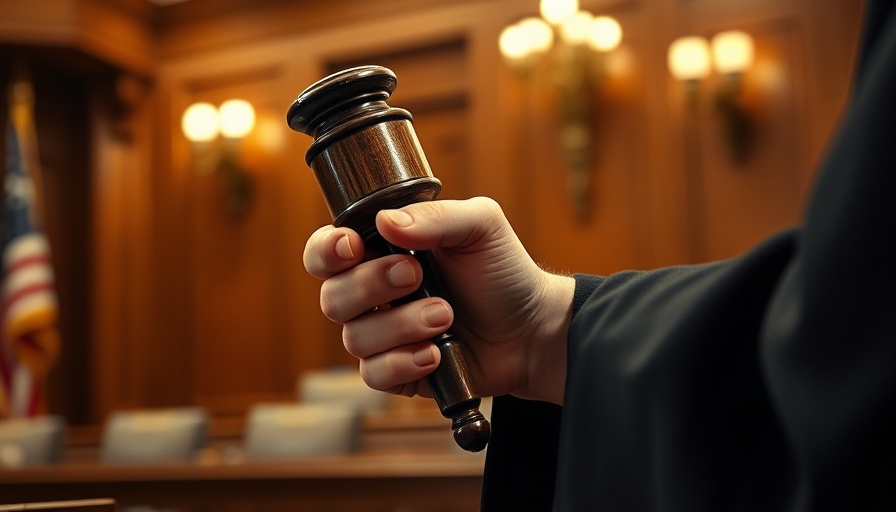
The AI Courtroom Conundrum: A Deep Dive
This bizarre event, where a federal judge in Mississippi is accused of relying on artificial intelligence for a bewildering ruling, exemplifies the growing intersection of technology and traditional legal frameworks. The ruling, which included numerous factual errors—from fictitious plaintiffs to nonexistent cases—has raised serious concerns about how AI is being integrated into legal proceedings. For small business owners, this could have broader implications, especially as they navigate legal landscapes that could be increasingly influenced by automated systems.
What Happened? The Ruling in Question
Judge Henry Wingate's temporary restraining order attempted to halt the enforcement of a state law concerning diversity, equity, and inclusion programs in public education. However, the inaccuracies led many to question its origins, particularly whether AI tools, known for their 'hallucinations'—producing false or unverifiable information—were involved. The initial version incorrectly named plaintiffs like the Mississippi Library Association as participants in litigation, which raised eyebrows in legal circles.
The Implications for Small Business Owners
For small business owners, the ramifications extend beyond courtroom drama. If judges increasingly rely on AI-generated texts that may lack accuracy, legal proceedings can become fraught with uncertainty. Business owners might find themselves navigating a legal system that is, paradoxically, less reliable at a time when accuracy should be paramount. The mishaps in Wingate’s ruling could lead to challenges for businesses that are currently engaged in or considering litigation that intersects issues of diversity or equity.
Understanding AI Hallucinations and Their Impact on Law
AI ‘hallucinations’—a term used to describe when generative models produce incorrect outputs—are not just an academic concern. When these errors creep into official court documents, they pose a genuine risk to legal integrity. For small business owners who depend on the judiciary to uphold their rights, this could mean facing unfavorable decisions based on unreliable data. The potential for erroneous rulings raises the question of how businesses can prepare and safeguard themselves in a rapidly evolving legal framework.
The Future of AI in the Legal System
Despite the missteps in Judge Wingate's ruling, the integration of AI into legal systems is likely to continue. Legal technology is evolving to speed up processes and reduce costs, offering various benefits to small businesses. However, the current scenario necessitates a cautious approach. Small business owners should seek legal representation that understands the implications of AI and can navigate these potential pitfalls effectively. This can involve questioning the accuracy and reliability of documents generated by automated systems.
Taking Action: What You Can Do
The landscape of law is changing, and it is crucial for all stakeholders, especially small business owners, to stay informed and proactive. Consider investing in legal advisors who are well-versed in both the law and the implications of technology. Additionally, staying updated on legislative changes pertaining to AI can offer a competitive edge and help avoid legal missteps.
Conclusion: The Path Forward
The reliance on AI in legal decisions raises crucial ethical questions about trust, accuracy, and accountability. For small business owners, navigating this new landscape is essential in maintaining legal integrity and protecting their interests. The potential fallout from these integrative technologies demands vigilant monitoring and proactive measures to ensure just outcomes in court.
 Add Row
Add Row  Add
Add 




Write A Comment